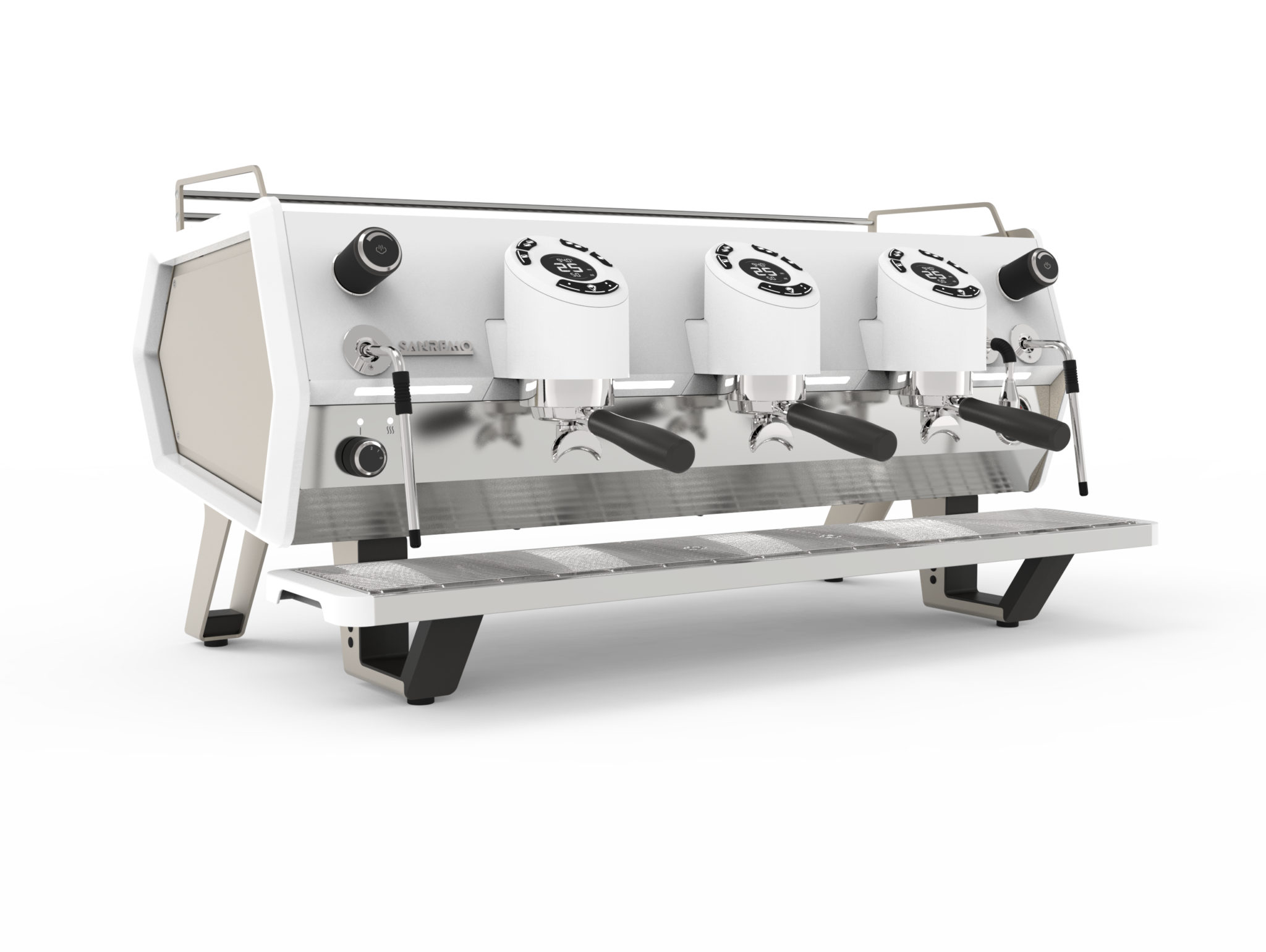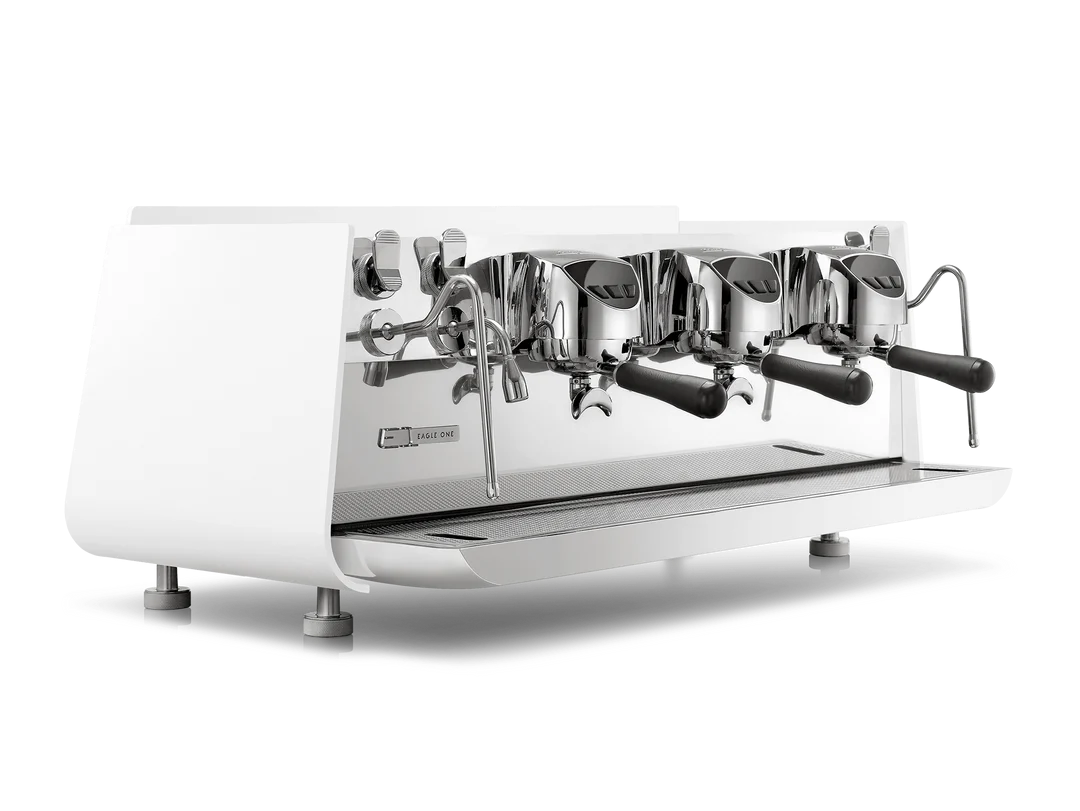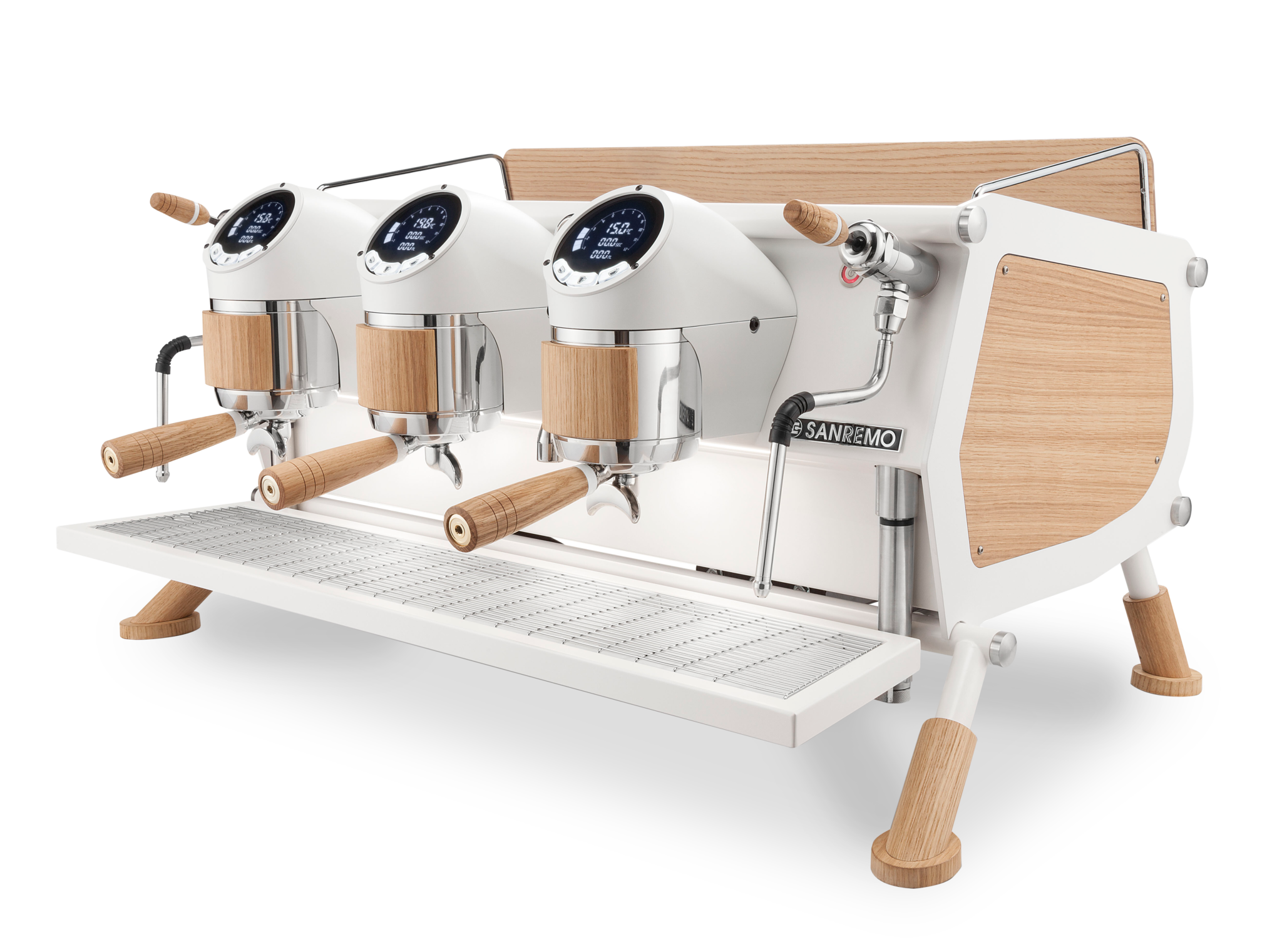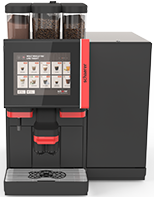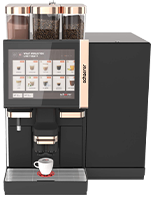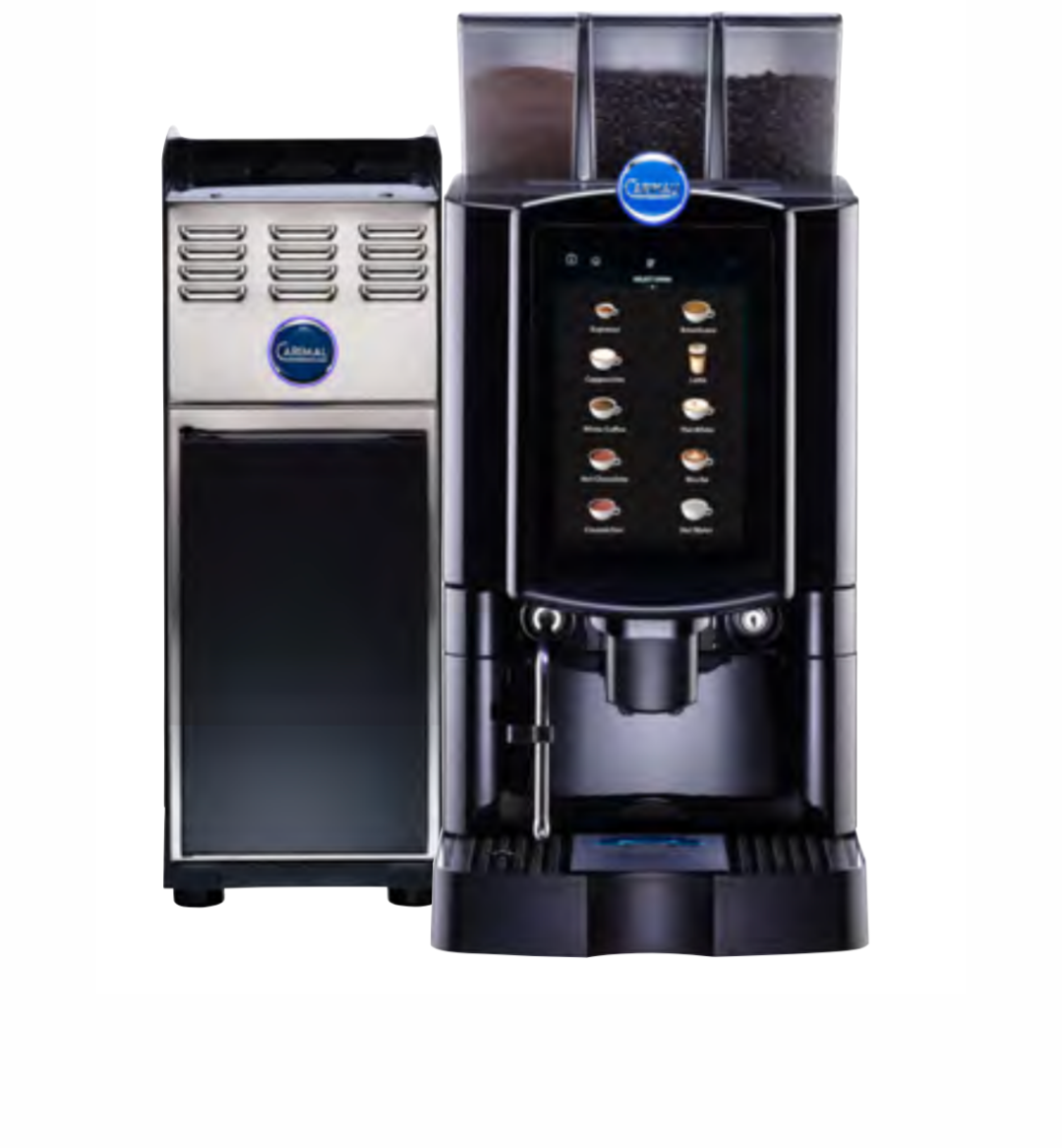“Should I choose a bean to cup vs espresso machine?”
This is a question we get quite a lot from customers. And in truth there is no right or wrong answer. It entirely depends on what you’re looking for out of a coffee machine.
Bean to cup and espresso machines are very different in the way they operate and what they’ll bring to your coffee experience. Which machine you decide to invest in will depend heavily on the type of experience you are trying to create, and the decision can be make or break for your business.
This guide will help you understand the differences, benefits, and potential drawbacks of each type of machine, to help you decide between either a bean-to-cup or a traditional espresso machine for your business.
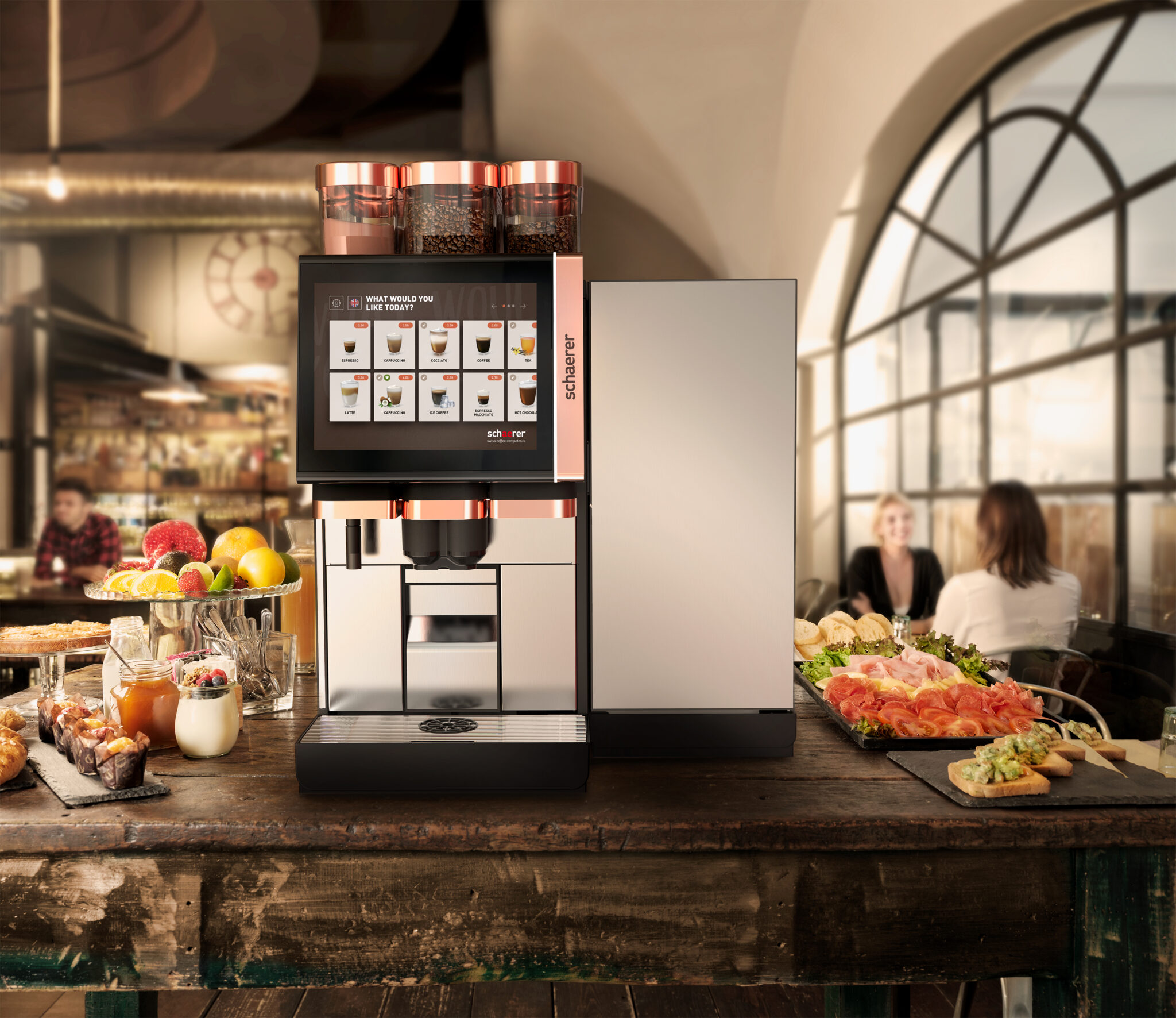
What is a bean-to-cup machine?
A bean-to-cup machine is an automated coffee machine that grinds fresh coffee beans, brews espresso, and often steams milk with minimal manual intervention.
Designed for ease of use, these machines are equipped with built-in grinders, automatic cleaning cycles, and programmable settings, making them ideal for businesses seeking a convenient coffee solution.
Why choose a bean-to-cup machine?
Bean-to-cup coffee machines are specifically designed for coffee outlets where speed, consistency and, above all, ease of use, are of high importance.
Ease of Use
With one-touch operation, bean-to-cup machines are user-friendly and require minimal training, making them suitable for offices, hotels, and other self-service environments.
Consistency
These machines maintain a fixed recipe for each drink, ensuring a consistent quality across multiple cups. This consistency can be beneficial for businesses that prioritise uniform taste over individual customisation.
Time Efficiency
Bean-to-cup machines quickly produce coffee without the need for manual grinding, tamping, or steaming. This speeds up service and reduces wait times, which is essential in high-traffic areas.
Low Training Requirements
Since the machine handles most of the work, staff don’t need barista-level skills to deliver quality coffee. This can help reduce training costs and staffing issues.
Minimal Effort for Maintenance
While regular cleaning is necessary, many bean-to-cup machines come with automatic cleaning programs that simplify the process.
Potential drawbacks of a bean-to-cup machine
Because bean-to-cup machines are ultimately made for ease of use, they don’t offer the wide range of customisation you’d get with an espresso machine and trained baristas.
Limited Customisation
The level of control over brewing variables is lower than with traditional espresso machines, making it challenging to fine-tune each cup.
High Initial Cost for Premium Models
Advanced bean-to-cup machines with top-tier features, such as automatic recipe calibration and milk steaming, can be expensive upfront, although they may save costs over time with lower staffing needs.
Less Suitable for Specialty Coffee Shops
Businesses aiming to offer a highly personalised coffee experience may find that bean-to-cup machines don’t provide the same level of craftsmanship as a skilled barista.

What is a traditional espresso machine?
A traditional espresso machine requires a barista to manually grind coffee beans, tamp the grounds, extract espresso, and steam milk.
This type of machine provides greater control over the coffee-making process, allowing for a higher degree of customisation and a more handcrafted coffee experience.
Why choose a traditional espresso machine?
Higher Quality Control
Experienced baristas can make precise adjustments to grind size, tamp pressure, and extraction time, resulting in potentially higher quality espresso.
Customisation
Baristas can tweak each brewing variable to suit different coffee beans and recipes, providing a personalised experience for customers.
Barista Interaction
Traditional machines allow baristas to engage more with customers, offering a level of hospitality and experience that automated machines cannot replicate.
Suitable for High-Volume Environments
With multiple group heads, traditional machines can handle high volumes efficiently, making them ideal for busy cafes.
Prestige and Craftsmanship
For specialty coffee shops, using a traditional espresso machine is often seen as a mark of quality and authenticity.
Potential downsides of a traditional espresso machine
High Training Requirements
Baristas need proper training to operate the machine effectively, which can increase staffing costs and training time.
Inconsistent Quality Without Skilled Staff
If not operated correctly, traditional machines can produce inconsistent coffee, especially with inexperienced staff.
More Frequent Maintenance
Traditional espresso machines require regular manual cleaning and maintenance, including backflushing and descaling.
What to think about when choosing between an espresso and bean-to-cup machine
Will You Have Skilled Baristas?
If you plan to have trained baristas, a traditional espresso machine may be a better fit. If not, a bean-to-cup machine offers a more user-friendly solution.
Do You Value Consistency or Customisation?
Bean-to-cup machines prioritise consistency, while traditional espresso machines provide more control for customisation.
How Much Maintenance/Cleaning Help Will You Need?
Traditional machines require hands-on cleaning and maintenance, whereas bean-to-cup machines often come with automated cleaning features.
Are You Planning a Self-Service Option?
For self-service setups, bean-to-cup machines are ideal due to their ease of use and minimal training requirements.
To Wrap Up
Choosing the right coffee machine for your business depends on your unique needs and priorities.
Whether you’re looking for the convenience and consistency of a bean-to-cup machine or the craftsmanship and customisation offered by a traditional espresso machine, understanding the strengths and limitations of each option will help you make a more informed decision.
Our Top Espresso Machine Recommendations
If a traditional espresso machine is the best option for your business, there are a huge number of options on the market to explore. Below are some of our favourites!
Our Top Bean-to-Cup Machine Recommendations
Or, if a bean-to-cup machine might suit your business a little better, then why not learn more about some of the best on the market.
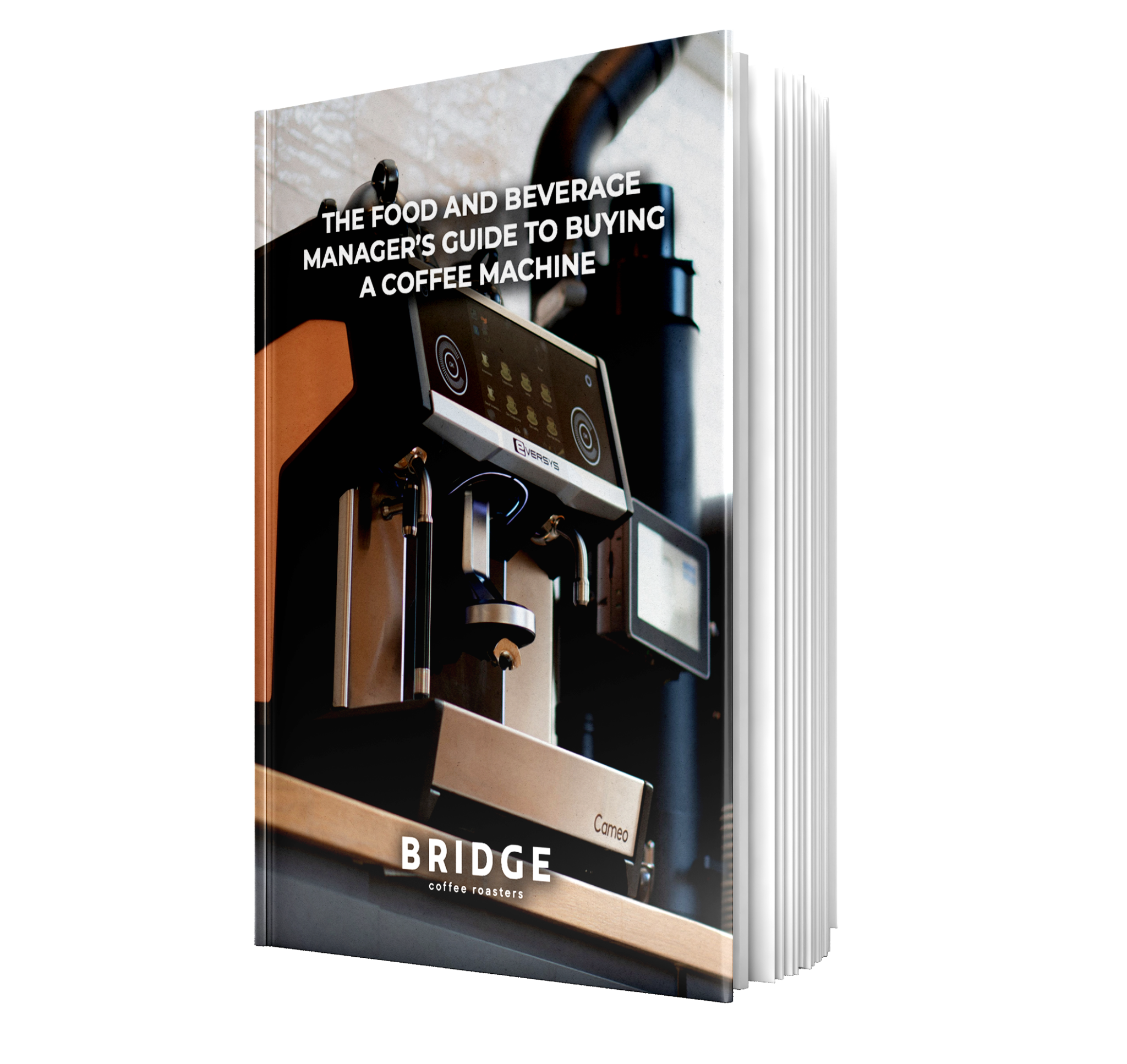
Download the FREE Guide to Buying Commercial Coffee Machines
Make the best decision when it comes to buying a coffee machine for your business by downloading our free eBook!
“The Food and Beverage Manager’s Guide to Buying a Coffee Machine”
Get my Free Copy
Still Undecided?
We completely understand. There is a lot of information out there and many things to consider when selecting a coffee machine. We’re more than happy to listen to your needs and provide our recommendations, so don’t hesitate to get in touch.
Speak to the team

